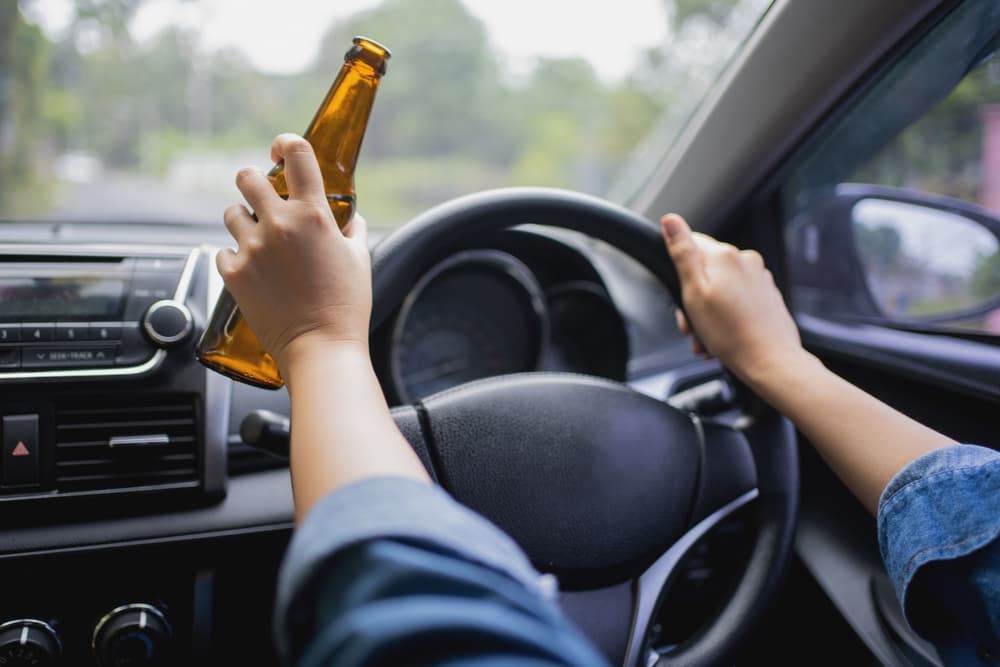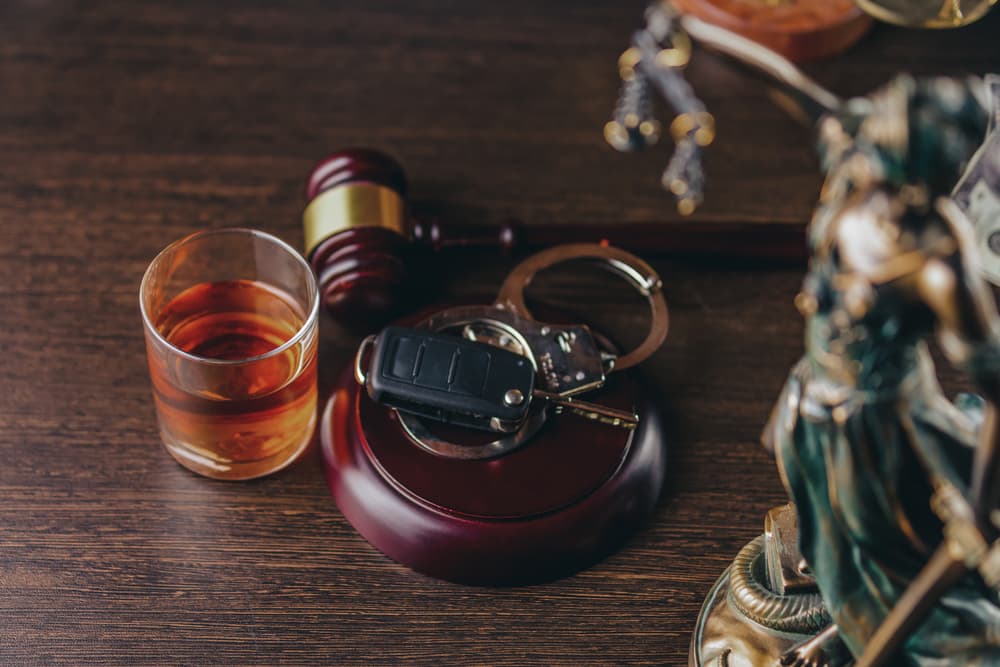A criminal conviction for driving under the influence, or DUI, can result in numerous penalties and collateral consequences. One of those consequences may be the inability to drive for a ride-sharing company like Uber. However, Uber’s policies are not set in stone, and there may be some situations where you can still drive for them after a DUI conviction.
If you are currently facing a DUI charge, speak with an experienced criminal defense attorney in your area as quickly as possible. Your attorney can determine your eligibility to raise a legal defense in court or may be able to secure a favorable plea deal with a state prosecutor handling your case.
If you ultimately incur a conviction, your lawyer can represent you at a sentencing hearing and work to lessen the penalties or collateral consequences you may face. Finally, your DUI defense attorney can represent you at a hearing before the Department of Motor Vehicles to lessen or eliminate the consequences on your driving privileges.
DUI Legal Limits
In the area of DUI law, legal limits serve as benchmarks to determine whether a driver is impaired by alcohol or drugs while operating a vehicle. These limits, often expressed in terms of blood alcohol concentration (BAC), vary by jurisdiction but generally fall within a range of 0.08 percent to 0.10 percent. This means that if a driver’s BAC exceeds the legal limit, they can be charged with driving under the influence (DUI).
However, it is important to recognize that impairment can occur at levels below the legal limit. Factors such as body weight, metabolism, and tolerance levels can influence how alcohol affects an individual, making it possible for someone to exhibit impaired driving behaviors even if their BAC is below the legal threshold.
To obtain a conviction in a DUI case, the government must prove several elements beyond a reasonable doubt. First, they must demonstrate that the accused (in other words, the defendant) was operating a motor vehicle while under the influence of alcohol or drugs. This can be established through various forms of evidence, including eyewitness testimony, police observations, and chemical tests such as breathalyzers or blood tests.
Second, the government must prove that the consumption of alcohol or drugs impaired the defendant’s ability to operate the vehicle safely. Evidence of erratic driving, poor performance on field sobriety tests, or the presence of alcohol or drugs in the defendant’s system can establish this.
Finally, the government must demonstrate that the defendant’s impairment was a direct result of their voluntary consumption of alcohol or drugs. This element is crucial because it distinguishes between someone who may have unknowingly ingested a substance and someone who knowingly consumed alcohol or drugs before driving.
To meet these requirements, prosecutors will typically rely on a combination of evidence, including witness testimony, police reports, chemical test results, and any other relevant information gathered during the investigation. Defense attorneys, on the other hand, may challenge the validity of the evidence presented, question the reliability of testing methods, or argue that alcohol or drugs did not influence the defendant’s actions.
Penalties Upon Conviction for a DUI
A DUI conviction can result in a range of penalties that vary depending on factors such as the severity of the offense, any prior convictions, and the laws of the jurisdiction where the offense occurred. These penalties can have significant consequences, affecting various aspects of an individual’s life.

One potential penalty for a DUI conviction is the loss of driving privileges. This can involve the suspension or revocation of a driver’s license, meaning the individual may be unable to legally operate a motor vehicle for a specified period. The length of the suspension or revocation can vary depending on the circumstances of the offense and any prior convictions.
In addition to losing their driver’s license, individuals convicted of DUI may also face fines and court costs. These financial penalties can be substantial, with fines ranging from hundreds to thousands of dollars, depending on the jurisdiction and the severity of the offense. Court costs, legal fees, and expenses related to attending alcohol education programs or completing community service may further add to the financial burden.
Another potential penalty for a DUI conviction is the requirement to attend alcohol education or treatment programs. These programs aim to address substance abuse issues and help individuals understand the dangers of driving under the influence. Depending on the jurisdiction and the circumstances of the offense, participation in these programs may be mandatory as part of the sentencing process.
In more serious cases or for repeat offenders, a DUI conviction can also result in jail time. The length of incarceration can vary widely, ranging from a few days to several years, depending on factors such as the individual’s criminal history, the presence of aggravating circumstances (such as causing injury or death while driving under the influence), and the laws of the jurisdiction.
Beyond these legal penalties, a DUI conviction can also have long-term consequences on a person’s personal and professional life. It can affect employment opportunities, damage relationships, and lead to increased insurance premiums or difficulty obtaining insurance coverage.
Other Consequences of a DUI — Including the Ability to Drive for Uber
In the aftermath of a DUI conviction, individuals often face a variety of consequences that can significantly affect their lives. From legal penalties to personal and professional repercussions, the aftermath of a DUI can be challenging to navigate. One such consequence is the potential effect on employment opportunities, particularly in fields that require driving. However, despite the hurdles, some individuals may still be able to drive for rideshare services like Uber.
A DUI conviction typically results in the suspension or revocation of a driver’s license, which can make it seem impossible to continue working in a profession that involves driving. In the case of Uber, the company generally requires drivers to have a valid driver’s license and meet certain criteria, including passing a background check. A DUI conviction may raise concerns during this process as it indicates a history of impaired driving.
However, Uber’s policies regarding DUI convictions are not set in stone, and the company may consider mitigating factors such as the severity of the offense, how long ago it occurred, and whether the individual has completed any required rehabilitation programs. In addition, Uber may take into account any steps the individual has taken to demonstrate responsibility and accountability for their actions, such as participating in alcohol education classes or seeking counseling.
For some individuals, driving for Uber can provide an opportunity for redemption and rehabilitation. It allows them to earn a living while demonstrating their commitment to safe driving practices. Furthermore, it can serve as a valuable source of income during a time when other employment opportunities may be limited due to the stigma associated with a DUI conviction.
However, the eligibility to drive for Uber after a DUI conviction is not guaranteed. Uber evaluates each case on an individual basis and reserves the right to deny employment to anyone who does not meet their standards or poses a risk to the safety of their passengers.
While a DUI conviction can have far-reaching consequences, including limitations on employment opportunities, driving for Uber may still be a possibility for some individuals. By demonstrating accountability, responsibility, and a commitment to safe driving practices, individuals with a DUI conviction can overcome the challenges and find employment with rideshare services like Uber.
Possible Defenses to a DUI Charge
Facing a DUI charge in court can be challenging, but there are several potential defenses available to a knowledgeable attorney. These defenses aim to challenge the prosecution’s case and cast doubt on the evidence the prosecution presents. Some common defenses include:
- Improper Stop — If law enforcement officers did not have a valid reason to pull over the defendant’s vehicle, the stop may be unconstitutional. Without a lawful stop, any evidence obtained thereafter, such as field sobriety tests or chemical tests, may be suppressed in court.
- Inaccurate Field Sobriety Tests — Field sobriety tests, such as the walk-and-turn or one-leg stand, are subjective assessments of a driver’s coordination and balance. Factors such as uneven terrain, weather conditions, or physical disabilities can affect performance. Defense attorneys may challenge the reliability of these tests in court.
- Faulty Breathalyzer or Blood Tests — Law enforcement commonly uses breathalyzer and blood tests to measure blood alcohol concentration (BAC). However, these tests are not infallible and can produce inaccurate results due to improper calibration, contamination, or mishandling. Defense attorneys may challenge the validity of these tests by questioning the procedures followed or the qualifications of the personnel administering them.
- Rising BAC Defense — Alcohol absorption and elimination rates vary among individuals. The defense may argue that the defendant’s BAC was below the legal limit at the time of driving but rose above the limit by the time law enforcement tested them. This defense relies on expert testimony and scientific evidence to establish the timing of alcohol consumption and absorption.
- Medical Conditions or Medications — Certain medical conditions or medications can mimic the symptoms of intoxication, such as slurred speech or impaired coordination. The defense may present evidence of a medical condition or the use of a prescription medication to explain these symptoms and challenge the prosecution’s assertion of impairment.
- Violation of Miranda Rights — If law enforcement officers failed to inform the defendant of their Miranda rights, any statements made by the defendant during the arrest process may be inadmissible in court. This defense aims to exclude incriminating statements obtained in violation of the defendant’s constitutional rights.
By exploring these and other potential defenses, individuals facing DUI charges can work towards achieving the best possible outcome in their case. It is essential to consult with a qualified attorney who can assess the circumstances of the arrest and develop a strategic defense tailored to the specific details of your case.
Plea Bargaining Versus Taking a DUI Case to Trial

When facing a DUI charge, individuals often have to make a critical decision — whether to accept a plea bargain or take their case to court. Both options carry potential benefits and risks, and it is essential to carefully weigh the factors involved before making a decision.
Accepting a plea bargain involves pleading guilty to a lesser offense or agreeing to a reduced sentence in exchange for avoiding a trial. This option can offer several advantages, including certainty about the outcome of the case, avoiding the uncertainty and stress of a trial, and potentially receiving a lighter sentence than if convicted at trial. In addition, plea bargains can help expedite the legal process, reducing the time and expense associated with a lengthy court battle.
However, accepting a plea bargain also means admitting guilt to a criminal offense, which can have long-term consequences, including a permanent criminal record, potential restrictions on employment opportunities, and increased insurance premiums. Additionally, individuals may feel a sense of injustice if they believe they are innocent or if they feel pressured into accepting a plea deal due to the fear of harsher consequences if convicted at trial.
On the other hand, taking a DUI case to court involves presenting evidence, cross-examining witnesses, and arguing legal defenses before a judge or jury. This option allows individuals to assert their innocence and challenge the prosecution’s case, potentially leading to an acquittal or a dismissal of charges. Going to trial also provides an opportunity for individuals to exercise their constitutional right to due process and to hold the government accountable for proving guilt beyond a reasonable doubt.
However, taking a DUI case to court can be time-consuming, costly, and emotionally taxing. There is no guarantee of a favorable outcome, and individuals risk facing harsher penalties if convicted at trial than if they had accepted a plea bargain. Besides that, the outcome of a trial is ultimately in the hands of a judge or jury, whose decisions may be unpredictable.
The decision to accept a plea bargain or take a DUI case to court depends on the individual’s unique circumstances, including the strength of the evidence, the potential consequences of conviction, and their personal tolerance for risk. Consulting with a qualified attorney can provide valuable guidance and help individuals make an informed decision that aligns with their best interests.
Contact an Experienced Criminal Defense Lawyer Today
A DUI conviction can come with some serious penalties and collateral consequences – including the inability to drive for ridesharing companies like Uber. If you are currently facing a DUI charge, you need to contact an experienced criminal defense attorney right away. Your lawyer can pursue a complete dismissal of your charge, push for a driver’s license reinstatement, and lessen the penalties and collateral consequences you may face.


